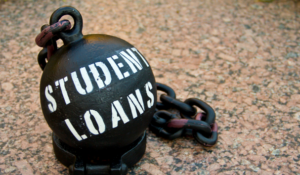Oops! My Student Loans Are In Default! What Do I do Now?
Most student loans are considered in default when the borrower fails to make payments for 270 days. Private student loans may have different terms and may consider the student in default if they miss just one payment.
Read your loan contracts carefully! Be sure you understand to read your loan agreement before you sign it. Read the sections about what could put you risk for defaulting. Then do everything you can to prevent it.
The following lists should convince you that defaulting on your student loans can lead to overwhelmingly negative consequences.
Consequences and Penalties When Student Loans Go Into Default
If your student loans go into default, here are some of the difficulties you may face:- Your lender will accelerate your loan. This means the full loan balance, including interest, will be due immediately.
- The loan will be assigned to a collection agency who will add additional fees to the balance of your loan.
- Your loan balance will skyrocket. The collection agency will add late fees, added interest, court costs, attorney fees, and any other expenses incurred during the loan collection process.
- You will no longer be eligible for deferment or flexible repayment options.
- You will lose all eligibility for additional federal student loans and grants.
- Your federal and state tax refunds can be seized by a state or federal agency.
- A portion of your Social Security disability or retirement benefits can be seized.
- The federal and/or state government can garnish your wages.
- The government or private loan holders may pursue legal action you.
- The lender can also pursue payment from your cosigner will be on the hook for the debt.
- You may also find yourself caught in a situation where you have astronomical debt.
Read more here
Check us out on Facebook at Fight Student Loan Debt
Or Check Us Out on The Web at Student Loan Debt
Collection Defense

Comments
Post a Comment